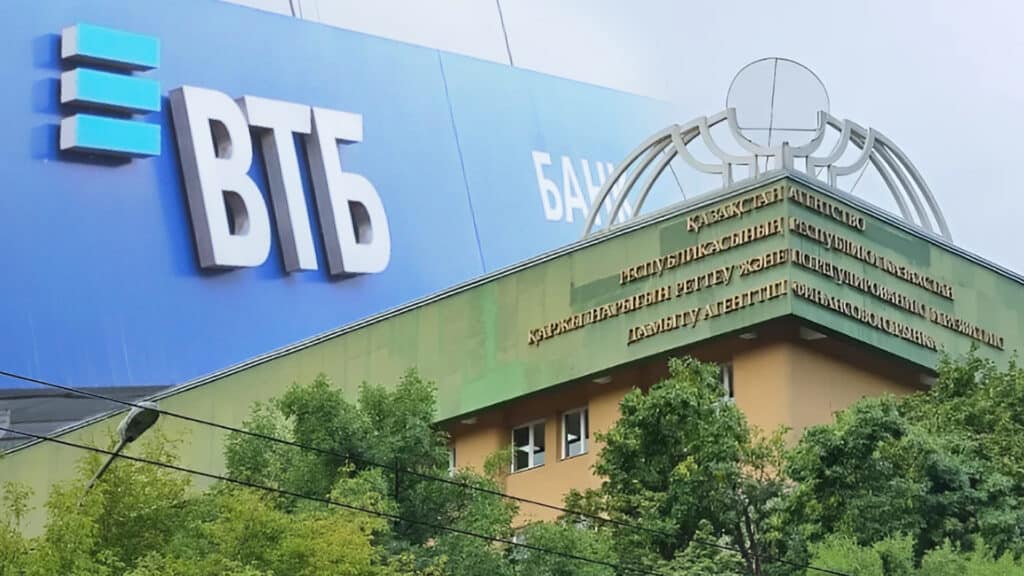Kazakhstani authorities urge banks and companies interacting with sanctioned VTB to strengthen their compliance

Kazakhstan’s Agency for Regulation and Development of the Financial Market (ARDFM) has revealed its stance regarding the threat of U.S. secondary sanctions toward businesses cooperating with VTB Kazakhstan, a subsidiary of the Russian VTB, sanctioned by the U.S. The agency stated it won’t take any active actions.
On July 3, 2024, the Office for Foreign Asset Control (OFAC) of the U.S. Department of the Treasury published a list of sanctioned individuals and entities, warning that cooperation with them bears risk of secondary sanctions. VTB Kazakhstan, the only subsidiary of the sanctioned Russian bank in Kazakhstan, was also on the list.
«Generally speaking, sanctions imposed by authorized agencies in the U.S. are unilateral and primarily mandatory for U.S. residents, including American banks. At the same time, the U.S. government reserves the right to impose sanctions against any companies if it believes their cooperation with individuals or entities on the sanction list is aimed at breaching those sanctions,» the ARDFM said in response to a Kursiv.media inquiry.
The agency pointed out that current Kazakhstani legislation does not imply any direct ban on transactions with entities on the sanction list. However, banking regulations demand commercial banks set special compliance control systems to manage compliance risks.
«When we talk about compliance risks, we mean the possibility of banks breaching the legislation of the Republic of Kazakhstan or the legislation of other countries requiring customer due diligence and transaction monitoring, which may lead to consequences affecting banking activities and causing losses,» the ARDFM explained.
Commenting on relations between different banks and between banks and their clients, the agency said that due to the civil legal nature of such interactions, they should be based on bilateral arrangements.
«Consequently, banks have the right to establish business relations with any banks or clients and conduct any transactions with them on their own. Of course, they have to consider their risk profile and comply with the legislation,» the ARDFM said.
The context. In March 2022, after the Russian full-scale invasion of Ukraine, SWIFT, Visa and Mastercard stopped working with commercial banks under the VTB Group. Moreover, due to EU and U.S. sanctions, VTB Kazakhstan lost the opportunity to work with the U.S. and EU currencies.
Sberbank Kazakhstan, Alfa Bank, and Home Credit Bank, three Kazakhstani banks controlled by Russian shareholders, were also affected. Later on, Sberbank was purchased by Baiterek Holding and renamed Bereke Bank. The second bank was bought by Bank CenterCredit, while top executives of the international investment and financial corporation PPF, led by Jiří Šmejc, acquired 75% of the shares of Home Credit Bank. As a result, VTB Kazakhstan was the only bank controlled by Russian shareholders before 2022 that hasn’t changed its owner or core activity. The bank is currently focused on facilitating trading transactions between Kazakhstan and Russia.

